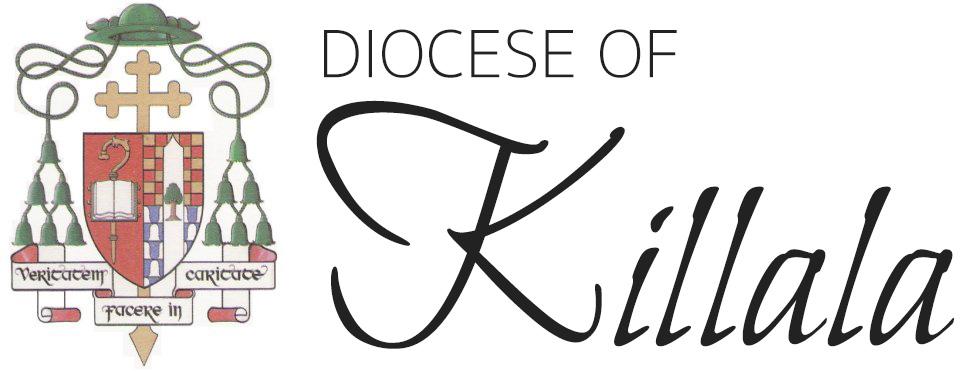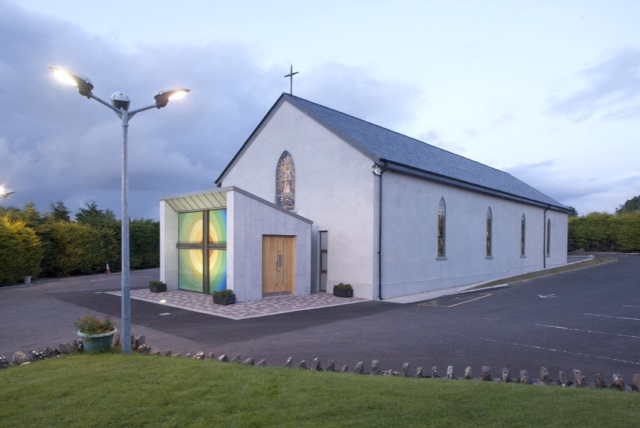There’s something very precious about a church, particularly an old church. It was once just a building with four walls and a roof but it became in time the still centre of a parish, a spiritual home, a sacred space, a place made holy by what has happens within it: the Masses said, the Baptisms performed, the marriages celebrated, the burial of loved ones, the daily visits of passersby. When people meet to worship, when a community gathers around an altar to break the Bread of Life and to eat at God’s table, something extraordinary happens. The building gradually takes on a different character; it becomes more than the sum of all of its parts; it becomes the heart-beat of a faith community, a sacred place, that enshrines the most precious moments of our lives. It becomes, in time, part of what we are. The very character of a building is transformed. It’s as if the accumulated worship and prayers of centuries gradually seep into its walls and floors to give it a meaning beyond the timber and cement and stones that went into its building. When some years ago people in Moygownagh felt the need to refurbish this church, no matter what kind of disrepair it might have been in, I doubt very much if anyone would have ever contemplated building a new church. The memory enshrined in the very texture of St Cormac’s – first Communion days, Confirmation days, funeral Masses, private devotions – would be too precious to give up. For more than 168 years St Cormac’s pre-Famine church has become part and parcel not just of the heritage of Moygownagh but the heart of a vibrant faith community that continues to this day. It’s a long story stretching back to Saints Daria and Cormac to churches in Knockaculleen, Killeenatrask and Driminangle and eventually through the twists and turns of centuries to St Cormac’s Church, built in 1846 on the cusp of the Great Famine. I love visiting churches, at home and abroad. Huge cathedrals dominating a city skyline and small village churches, nestled in backward places. You get a sense of a place from a local church, a sense of the priorities of people – and priest. Like a photograph, a church is as good as a thousand words. It’s a window into a community. Once visiting churches was a popular enough pastime, even for non-believers like the poet, Philip Larkin, whose poem Church Going captures the mood of different churches: Once I am sure there’s nothing going on I step inside, letting the door thud shut. Another church: matting, seats, and stone, And little books; sprawlings of flowers, cut For Sunday, brownish now; some brass and stuff Up at the holy end; the small neat organ; And a tense, musty, unignorable silence, Brewed God knows how long. Hatless, I take off My cycle-clips in awkward reverence. Larkin took to wondering what we’d turn churches into when they ‘fall completely out of use’ or if we’ll keep ‘a few cathedrals chronically on show . . . And let the rest rent-free to rain and sheep’. Larkin wrote his poem over fifty years ago and, in many places, the pattern of ‘letting go’ of our churches has now emerged. A local church, once ‘a serious house on serious earth in whose blent air all our compulsions meet’, becomes a library or a restaurant or even a fruit market. And, in the process, we sense we’ve lost more than a building. Thankfully that’s not the case with St Cormac’s in Moygownagh, where a small faith-community has, in difficult times, made an act of faith in the future by securing a sacred space where its people, in Larkin’s telling words, will forever be surprising a hunger in themselves and gravitating with it to this holy ground. This present refurbishment, commemorated on this November day, reminds us of the debt we owe to generations who built and maintained St Cormac’s (and our other churches over the centuries), those who kept the flame of faith alive in good times and in bad. It reminds us too of our responsibility to pass that torch to another generation, who will, please God, find in this place a holy ground where they will ‘forever be surprising a hunger in themselves’.
Brendan Hoban, PP

